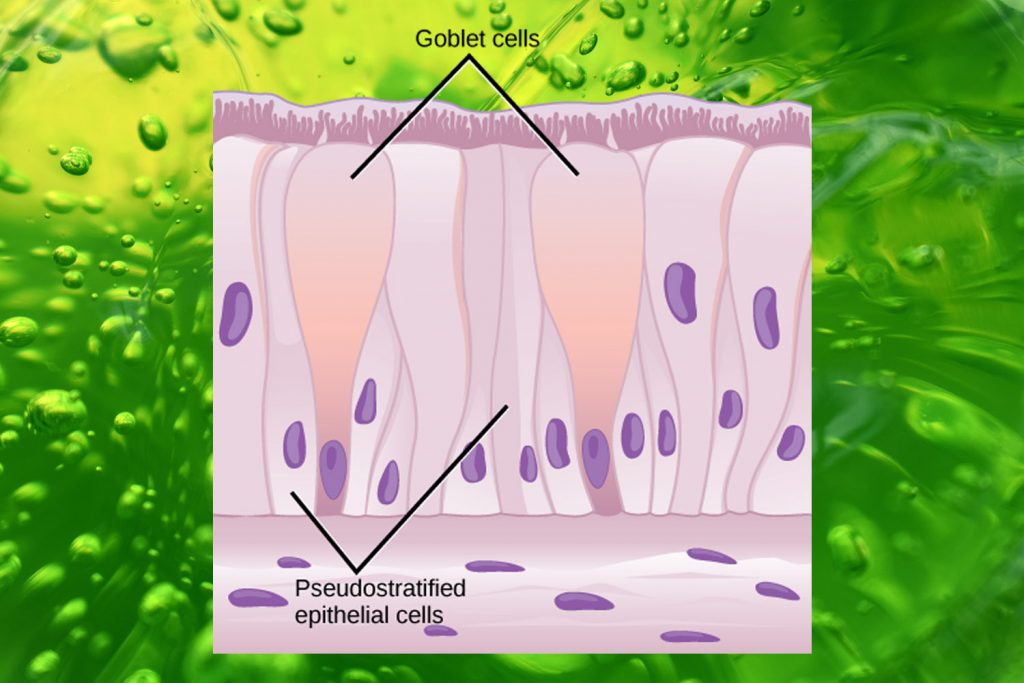IN OTHER LANGUAGES

The respiratory mucus is mostly produced by specialized cells present in the respiratory epithelium called globlet cells. Normal mucus is composed by 97% water, that helps to humidify the incoming air, and 3% solids (proteins including mucins, salts, fats, and residues coming from dead cells).
The mucus is a gel, thanks to the presence of mucins, glycoproteins that create a three-dimensional network inside the liquid. It is soft, elastic, viscous, and sticky, trapping incoming foreign particles and microorganisms.

As we explained in this article, thanks to the continuous movement of the respiratory cilia, the mucus is propelled in the direction of the beak/mouth to expel it outside the body. Cough is a secondary mechanism for the expulsion of mucus.
A healthy mucus is a gel with low viscosity, that can be easily transported by the cilia. A pathologic mucus has a higher viscosity, it’s less easy to transport, and can clog the airways, making breathing more difficult.
Accumulation of mucus in the upper respiratory tract is a common sign of respiratory diseases in farm animals. It leads to cough, difficulty to breathe, and a higher risk of secondary infections.
Mucus can become pathologic, more viscous, and difficult to eliminate when:
The clearance of mucus is impaired when:
Eucalyptus and peppermint are used in to treat accumulation of mucus in the upper respiratory system. There are scientific studies that support this application:
An additional benefit of using peppermint and eucalyptus during respiratory diseases is their antimicrobial action. Furthermore, eucalyptus oil has been proven to increase the bacterial clearance (elimination of pathogenic bacteria by the immune system of the animal).
PlusBreathe© contains essential oils with natural antiseptic, antioxidant, expectorant and mucolytic activity. It has a refreshing taste.
It is indicated to improve the functioning of the respiratory system and to mitigate heat stress in birds, ruminants, pigs and rabbits of all ages. It can also be nebulized in the farm environment.

Certain health statements may not be applicable in your region.